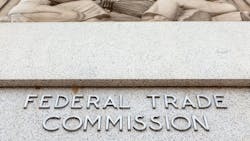A divided Federal Trade Commission (FTC) granted final approval for Exxon Mobil Corp.’s $64.5 billion purchase of Pioneer Natural Resources and Chevron Corp.’s $53 billion acquisition of Hess Corp. Jan. 17, 2025, capping the latest round of oil industry consolidation.
The antitrust authority, in a 3-2 decision in both cases, prohibited former executives from serving on boards or advising the companies after it “uncovered troubling evidence of public statements by US oil executives as well as direct private communications between those same executives and high-level OPEC representatives that were aimed at persuading rivals to join them in colluding to cut back oil production, which would increase oil prices for Americans,” FTC Chair Lina Khan said in a statement addressing both final approvals.
“This relief will help ensure that these companies seek to respond to their rivals by competing rather than subordinating their independent decision-making to the goals set by a cartel,” Kahn said.
Merger management
In the Exxon-Pioneer merger, the FTC prohibited founder and former Pioneer chief executive officer Scott Sheffield from serving on Exxon’s board or from serving in an advisory capacity in any way to the Exxon board or Exxon’s management.
Republicans on the commission blasted the majority’s decision, saying “the majority fabricated one of the most ludicrous theories of harm in its merger-enforcement history” in its initial complaint against Sheffield for possible collusion.
“The complaint butchered both the economics and law of coordinated effects, provided absolutely no reason to believe the law has been violated, and ignored the public interest by using its complaint to obtain a consent agreement that targeted an individual who was not party to the agreement,” said Melissa Holyoak, who dissented on behalf of herself and colleague, Andrew Ferguson.
“To prove that the Exxon Complaint was not mere transient amnesia, the majority regurgitated its theories of harm a few months later in a complaint that challenged Chevron Corporation’s acquisition of Hess Corporation,” she added.
Holyoak and Ferguson alleged the move was political. “Today’s vote should vacate the [FTC’s previous] order, but instead the majority’s pre-inauguration swan song disregards the public interest. As the new administration replaces the old, the public interest considerations will be more than lip service, and the continuing viability of this order should be scrutinized.”
The Exxon-Pioneer merger, which marks the operator's largest since buying Mobil decades ago, more than doubles ExxonMobil's Permian basin production (OGJ Online, Nov. 6, 2023). The combined company will produce about 1.3 MMboe/d from the Permian, with 2027 output growing to an estimated 2 MMboe/d.
In the Chevron-Hess deal, the FTC prohibited Hess chief executive officer John Hess from serving on the Chevron board. But in a change from the initial order, the antitrust agency said Chevron could consult John Hess “solely related to interactions and discussions with (a) Guyanese government officials about Hess’s oil-related and health ministry-related activities in Guyana, and (b) the Salk Institute’s Harnessing Plants Initiative.”
Chevron agreed to acquire Hess in October 2023 for $53 billion, further diversifying the energy company’s portfolio by adding the Stabroek block interests offshore Guyana and Bakken acreage to the company’s existing US shale position. The deal increases Chevron’s estimated 5-year production and free cash flow growth rates that the company says will extend into the next decade (OGJ Online, Oct. 23, 2023).
About the Author
Cathy Landry
Washington Correspondent
Cathy Landry has worked over 20 years as a journalist, including 17 years as an energy reporter with Platts News Service (now S&P Global) in Washington and London.
She has served as a wire-service reporter, general news and sports reporter for local newspapers and a feature writer for association and company publications.
Cathy has deep public policy experience, having worked 15 years in Washington energy circles.
She earned a master’s degree in government from The Johns Hopkins University and studied newspaper journalism and psychology at Syracuse University.
